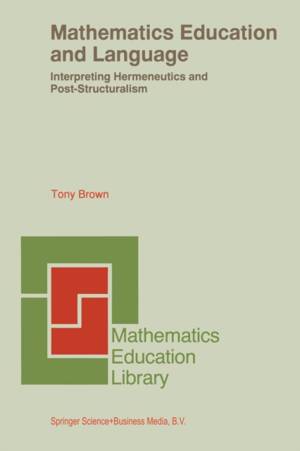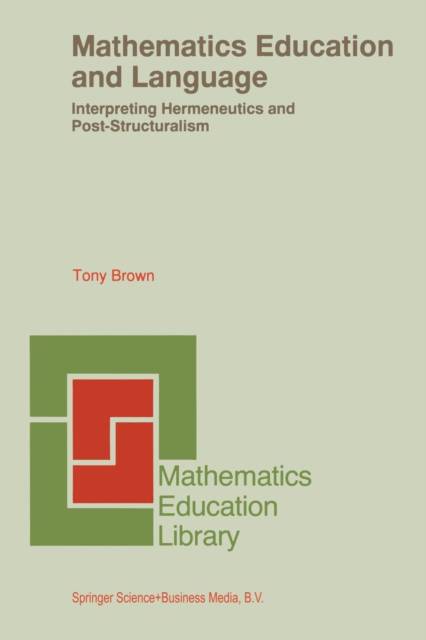
Bedankt voor het vertrouwen het afgelopen jaar! Om jou te bedanken bieden we GRATIS verzending (in België) aan op alles gedurende de hele maand januari.
- Afhalen na 1 uur in een winkel met voorraad
- In januari gratis thuislevering in België
- Ruim aanbod met 7 miljoen producten
Bedankt voor het vertrouwen het afgelopen jaar! Om jou te bedanken bieden we GRATIS verzending (in België) aan op alles gedurende de hele maand januari.
- Afhalen na 1 uur in een winkel met voorraad
- In januari gratis thuislevering in België
- Ruim aanbod met 7 miljoen producten
Zoeken
€ 83,95
+ 167 punten
Uitvoering
Omschrijving
`Contemporary thinking on philosophy and the social sciences has been dominated by analyses that emphasise the importance of language in understanding societies and individuals functioning within them; important developments which have been under-utilised by researchers in mathematics education. This book reaches out to contemporary work in these broader fields; drawing on original sources in key areas such as Gadamer and Ricoeur's development of hermeneutics, Habermas' work in critical social theory, Schutz's social phenomenology, Saussure's linguistics and the post-structuralist analysis of Derrida, Foucault and Barthes. Through examining the writings of these major thinkers it is shown how language is necessarily instrumental in developing mathematical understanding; but a language that is in a permanent state of becoming, resisting stable connections to the ideas it locates. The analysis offered extends from children doing mathematics to teachers inspecting and developing their own professional practices.'
Specificaties
Betrokkenen
- Auteur(s):
- Uitgeverij:
Inhoud
- Aantal bladzijden:
- 270
- Taal:
- Engels
- Reeks:
- Reeksnummer:
- nr. 20
Eigenschappen
- Productcode (EAN):
- 9789401738002
- Verschijningsdatum:
- 23/08/2014
- Uitvoering:
- Paperback
- Formaat:
- Trade paperback (VS)
- Afmetingen:
- 156 mm x 234 mm
- Gewicht:
- 399 g

Alleen bij Standaard Boekhandel
+ 167 punten op je klantenkaart van Standaard Boekhandel
Beoordelingen
We publiceren alleen reviews die voldoen aan de voorwaarden voor reviews. Bekijk onze voorwaarden voor reviews.









